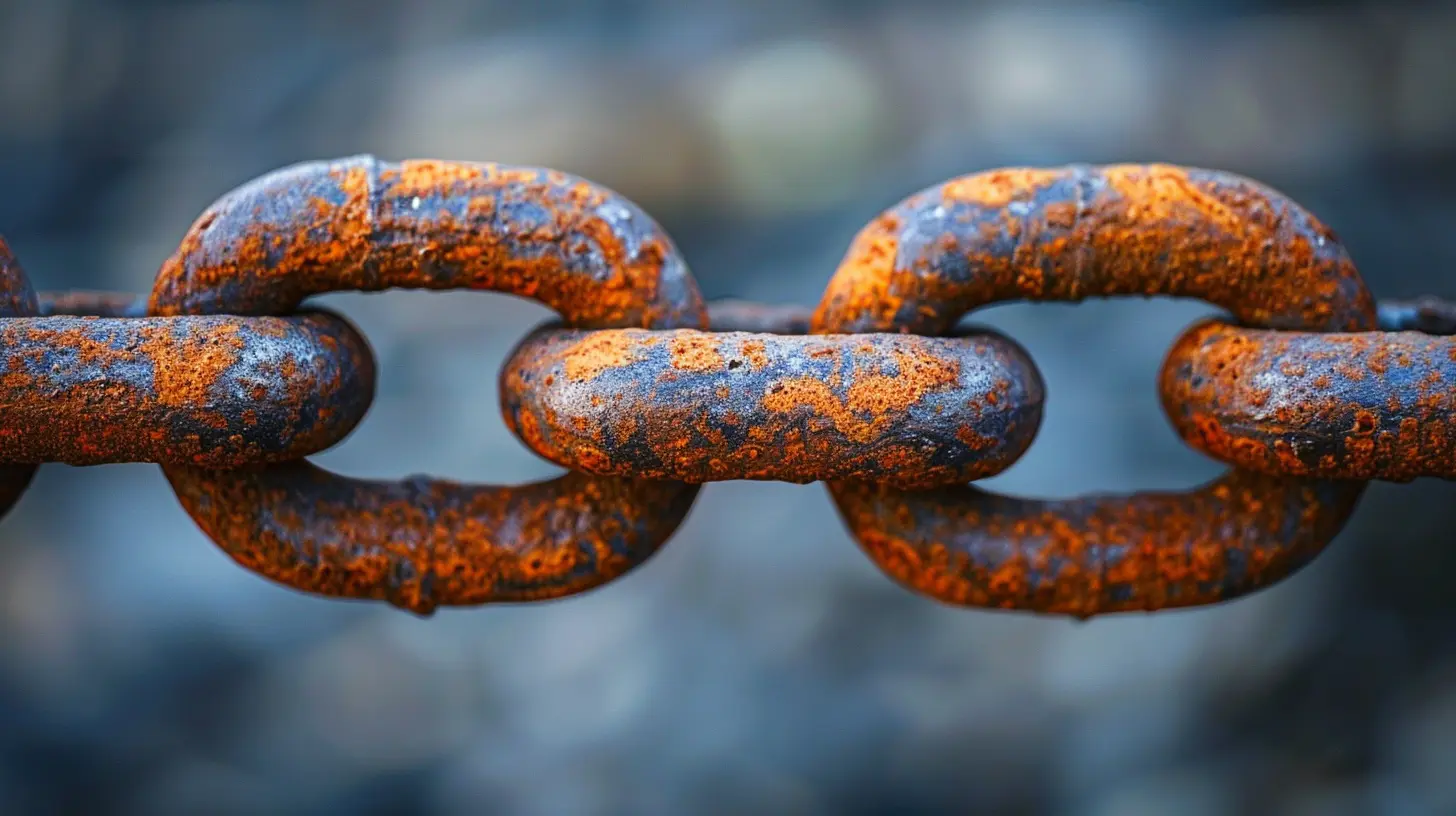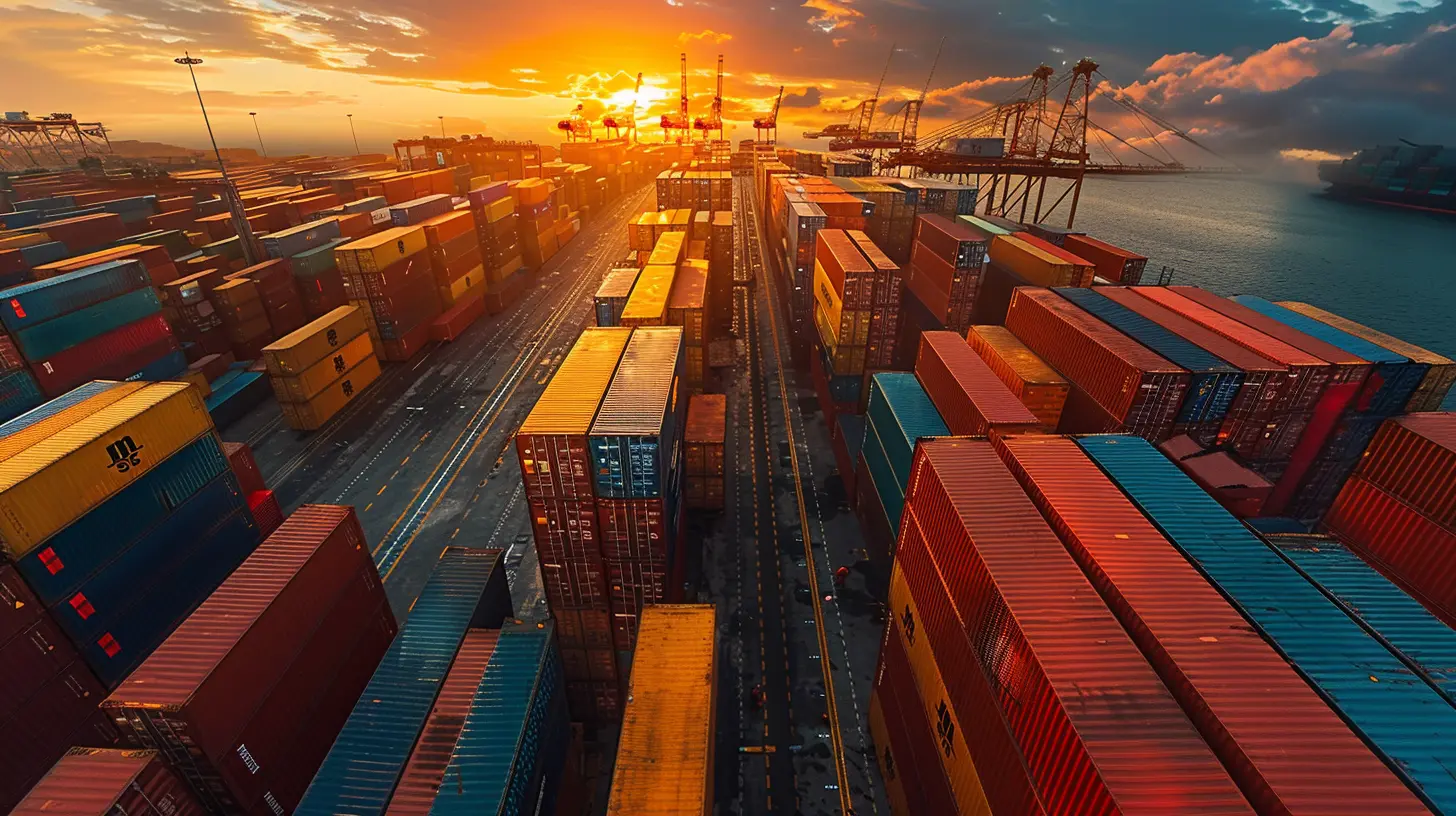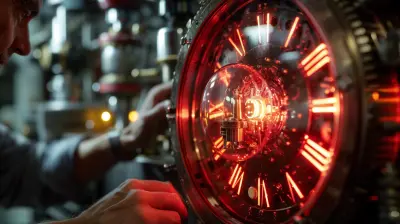How Blockchain is Revolutionizing Supply Chain Management
26 July 2025
Let’s be honest, the word “blockchain” used to sound like some elite tech buzzword that only crypto bros and Silicon Valley hipsters could care about. But plot twist—blockchain isn’t just about Bitcoin and Dogecoin memes anymore. It’s actually moonwalking its way into one of the most real-world, down-to-earth industries of all time: supply chain management. Yep, the same industry that makes sure the avocado toast gets to your brunch plate.
So, buckle up, because we’re diving into how this digital ledger (fancy term alert 🚨) is flipping supply chains on their heads—in a good way. No more losing shipments in the Bermuda Triangle or playing "Where's Waldo?" with warehouse inventory.
What Even Is Blockchain? (But Make It Fun)
Okay, before we go full geek mode, here’s a crash course in blockchain—in human language. Think of blockchain as a super-trusty notebook that everyone can see and write in, but no one can erase. Each new transaction is a page added to the notebook, and once it’s written down, it’s there for good. No whiteouts, no oopsies, no "my dog ate the database" excuses.This digital notebook is shared across thousands (sometimes millions) of computers, which means tampering with it is basically harder than getting a TikTok influencer to reply to your DM.
Now, sprinkle that magic into the supply chain. Cue the dramatic music.
The Supply Chain We All Know (And Secretly Dislike)
Let’s not sugarcoat it. Today’s supply chains are… messy. Global supply chains involve dozens of players—manufacturers, shippers, middlemen, customs, warehouses, retailers, and possibly your mom’s cousin who once worked at UPS. Between all those players, data gets lost, transactions get delayed, and products sometimes vanish into a mysterious black hole—probably hanging out with your missing socks.And don’t get me started on traditional paperwork. Want to track a single product? You’re looking at emails, invoices, spreadsheets, customs documents, sticky notes, and maybe a couple of prayer candles. There's zero transparency, accountability is optional, and fraud? Oh, it’s having a field day.
Enter Blockchain: The Supply Chain's New BFF
Blockchain comes waltzing in like, “Hey, I brought receipts—and they’re timestamped, verified, and immutable.”📦 1. End-to-End Transparency
Remember that time you ordered a gadget and waited 3 weeks only to receive... a brick? Blockchain can help fix that. With every step of a product's journey recorded on the blockchain, you can trace that Bluetooth speaker from the factory floor in Shenzhen to your doorstep in Cincinnati.It’s like a digital paper trail—even Sherlock Holmes couldn’t mess this one up.
🚫 2. No More "He Said, She Said"
Disputes in supply chains? Oh, they’re juicy. Who’s responsible for damaged goods? Why is there a 400-pound crate of bananas missing? With blockchain, every transaction is logged and time-stamped. It’s like the receipts live on a gossip-free, drama-proof timeline. The truth shall set your logistics free.🔐 3. Data Security on Steroids
Supply chains are data-devouring beasts. But storing data across multiple points also opens the door to cyber shenanigans. Hackers love a good, crusty old spreadsheet.Blockchain secures data in blocks (duh) that are cryptographically linked. Translation: it’s Fort Knox with Wi-Fi. And once a block is added? Changing it is as hard as getting your mom to stop using Internet Explorer.
🌎 4. Real-Time Tracking—For Real
We’ve all been there: checking the tracking number only to see “In Transit” for five days straight. Blockchain and IoT (Internet of Things) devices tag-team to give you real-time updates with GPS, temperature, humidity—heck, even if the delivery guy sneezed near your package.It’s like your package got Instagram and started posting its own story.
Industries Already Getting Cozy with Blockchain
Still thinking this is all theoretical fluff? Nah. Some big players are already sipping the blockchain Kool-Aid.🍔 Food & Beverage
Ever wonder where your burger’s been? Companies like Walmart and Nestlé are using blockchain to track food from farm to fork. So next time your lettuce has an existential crisis, you’ll know exactly what field it came from.🛍️ Retail
With counterfeits costing the industry billions, fashion and luxury brands are loving blockchain like it's the new black. It verifies authenticity, so you won’t accidentally drop $1,200 on a "Louis Vooitton."🚗 Automotive
From car parts to maintenance history, manufacturers are using blockchain to ensure their products aren’t Frankensteined together from random spare parts. Imagine a Carfax report, but on steroids and with a lie detector.💊 Pharmaceuticals
Counterfeit medicine is a real-life horror story. Blockchain helps track drugs from lab to pharmacy—ensuring your meds weren’t brewed in someone’s garage.Smart Contracts = Smarter Supply Chains
Oh, you thought blockchain was just about tracking stuff? Not even close. Enter smart contracts—basically digital contracts that execute themselves when certain conditions are met.Picture this: A shipment of electronics arrives at the port. The second it's scanned, the smart contract says, “Yup, that’s legit,” and boom—payment is released automatically. No middlemen, no "lost-in-email" invoices, just pure, automated magic.
It's like Venmo and a robot lawyer had a baby.
But Wait, Is Blockchain All Rainbows and Unicorns?
Hold up. Before we throw a blockchain parade, let’s keep it real. It's not all sunshine and supply chain bliss.🚧 Implementation Ain’t Easy
We’re talking global networks of companies, many of whom are still faxing stuff or storing data in Excel 2007. Getting everyone to switch to blockchain is like trying to get a group chat to agree on where to eat.📉 Scalability Woes
Blockchain networks, especially public ones, can get sluggish when overloaded. Want to track every potato in Idaho? Might need a serious upgrade in processing power—or at least a few Red Bulls.💸 Cost? Let’s Just Say It’s Not Free
Setting up a blockchain system means developers, infrastructure, training, and more. It's like renting office space in a tech utopia—it ain’t cheap, but it could be worth it long-term.The Future Is... Now-ish?
Despite the hurdles, blockchain isn't slowing down. With Web3, decentralized apps (dApps), AI, and IoT all joining the party, supply chain management is being digitized faster than you can say “disruption.”Governments are dipping their toes, startups are raising bazillions, and enterprises are launching pilot projects like they’re going out of style.
In short, the blockchain ball is rolling—and the supply chain world better lace up its sneakers.
So, Should You Hop on the Blockchain Bandwagon?
If you’re part of any supply chain—big or small—now is a pretty good time to educate yourself, experiment, and maybe even invest a little thought (and coin) into blockchain.No, it’s not a magic wand. But let’s be real: the current system is like using a rotary phone in an iPhone world. Blockchain could very well be the upgrade we’ve been waiting for.
Final Thoughts: From Buzzword to Backbone
What started as a niche technology for digital currencies is now reshaping how stuff moves around the planet. Blockchain is transforming supply chains from messy spaghetti bowls into clean, traceable, fraud-resistant networks.Will it solve world hunger? Probably not. But will it make sure your organic quinoa gets traced from its Peruvian roots to your plate with full transparency? You bet.
So next time someone says “blockchain,” don’t roll your eyes. Just smile knowingly and say, “Ah yes, the unsung hero behind my ethically sourced, fair-trade almond milk.
all images in this post were generated using AI tools
Category:
Blockchain TechnologyAuthor:

Michael Robinson
Discussion
rate this article
2 comments
Emory Fry
Great article! It's exciting to see how blockchain technology is enhancing transparency and efficiency in supply chains. Looking forward to more innovations in this space!
November 18, 2025 at 4:59 AM

Michael Robinson
Thank you! I'm glad you enjoyed it and share the excitement for future innovations in blockchain and supply chains!
Jolene Clayton
Blockchain is not just a buzzword; it's a transformative force in supply chain management. By enhancing transparency, traceability, and efficiency, it empowers businesses to streamline operations and build trust. Embracing this technology is essential for competitive advantage in today's dynamic marketplace.
August 2, 2025 at 11:23 AM

Michael Robinson
Thank you for your insightful comment! It's true that blockchain's ability to enhance transparency and efficiency is crucial for modern supply chains, providing a competitive edge in today's fast-paced market.


